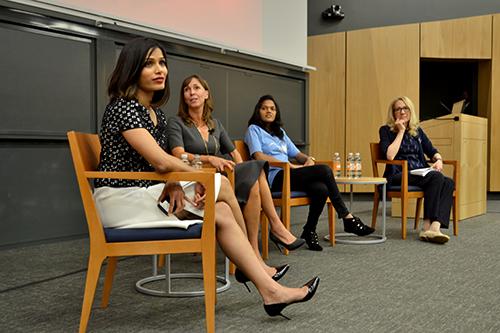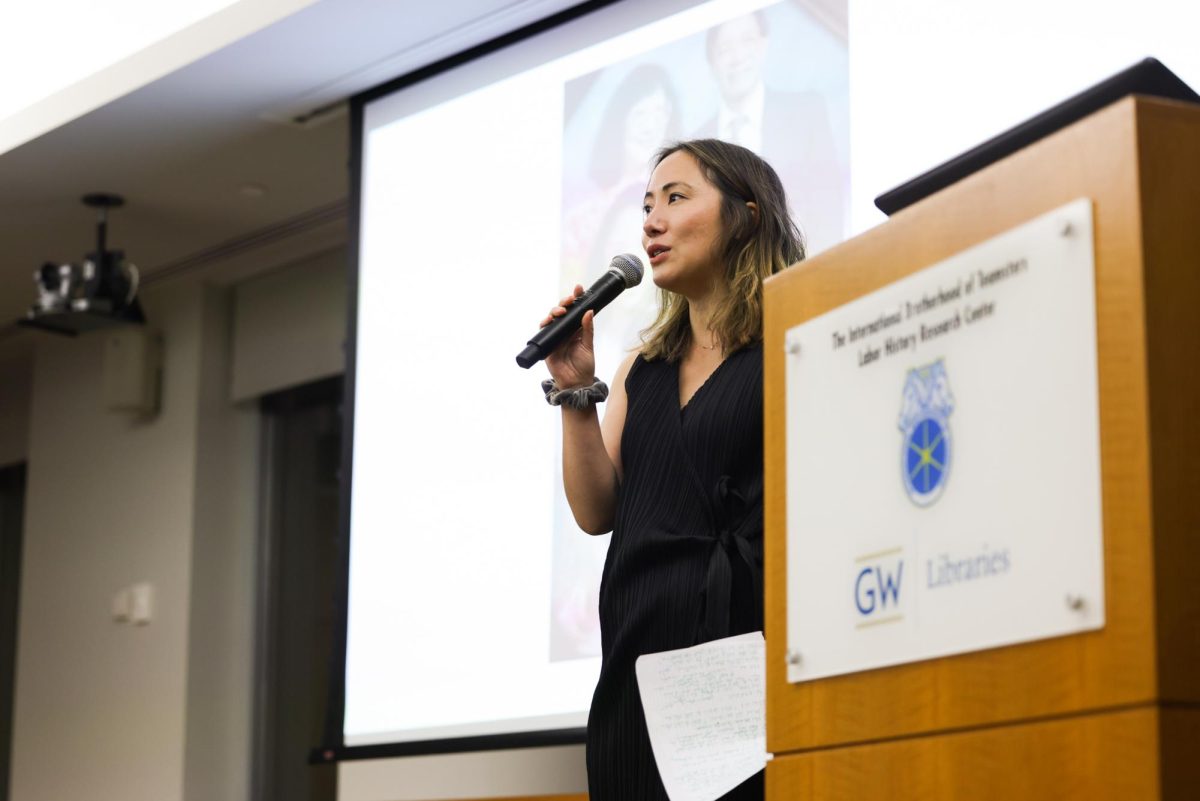
About 100 people filled an auditorium at the Milken Institute School of Public Health on Friday to see a screening of the film “Girl Rising,” followed by a discussion with actress Freida Pinto, an ambassador to the Girl Rising global campaign that produced the film. The movie highlights the stories of nine girls from different developing countries like Ethiopia, India and Peru.
At the event, which commemorates the upcoming International Day of the Girl on Oct. 11, Pinto discussed the importance of providing education for girls around the world.
Lynn Goldman, the dean of the public health school, called the movement and film a “global phenomenon” that shows “how fundamental education is when it comes to empowering girls.”
1. Giving girls a voice
Pinto recalled visiting a classroom in Ethiopia two years ago, where a girl sitting in the front row thanked Pinto for the visit, but added that she had missed her chemistry exam to see Pinto and that she wished Pinto had come on a different day.
Pinto said that although she was taken aback by the comment at first, she realized that “education is giving you the voice you really need to have.”
“We shouldn’t underestimate the power of voices,” Pinto said. “When we come together, things actually do happen.”
2. Using social media to make a change
During the discussion, Pinto asked audience members to pull out their phones and snap selfies. In the captions, Pinto told them to write something they had learned in school and promote the photos with the hashtags “#62MillionGirlsDon’tHaveThatChance” and “#LetGirlsLearn.” First Lady Michelle Obama also participated in the hashtag push.
Pinto said that using social media as a platform to speak out about issues creates a “sense of solidarity that we’re all going to do this together in some way or another.”
“Social media is the fastest, most effective way to say what you want really quick and hopefully the person on the other end will listen,” she said.
3. The power of storytelling
Martha Adams, the film’s chief creative officer who spoke at the screening, said that by focusing on human stories, “Girl Rising” adds a layer to empathy to statistics about issues that girls face.
Adams worked directly with the girls in the film, who she called “revolutionaries” and said she was “fortunate to sit next to girls who knew how to read, write and say no to early marriage.”
“A powerful story helps break down barriers and encourages people to treat these girls as their own daughters,” she said. “It makes them global citizens.”



